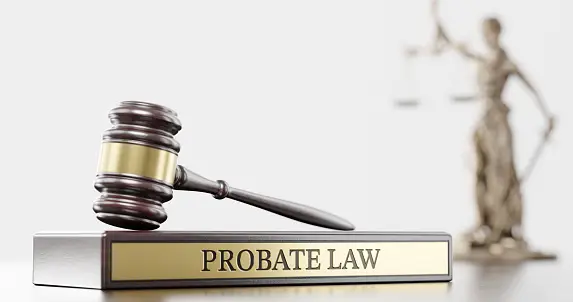Key Considerations for Estate Planning in Texas
Effective estate planning in Texas requires understanding various legal and financial factors that can impact your assets and beneficiaries. It is essential to consider the unique laws of Texas, including community property regulations, tax implications, and the rights of heirs.
For instance, Texas is a community property state, meaning that assets acquired during marriage are typically owned jointly by both spouses. This can influence how you structure your estate plan, especially if you have a blended family or significant assets. Consulting with an experienced probate attorney can help ensure your estate plan aligns with Texas laws and your personal goals.
Common Probate Misconceptions in Texas
Many individuals harbor misconceptions about the probate process in Texas, which can lead to unnecessary stress and confusion. One common myth is that all estates must go through probate, when in fact, certain assets can bypass this process entirely.
For example, assets held in a living trust or those that are jointly owned with rights of survivorship can avoid probate. Understanding these nuances can save time and money, allowing families to focus on healing rather than legal hurdles. Educating yourself about these misconceptions is crucial for effective estate management.
The Role of Executors in Texas Probate
In Texas, the executor plays a vital role in the probate process, responsible for managing the deceased's estate according to their will and Texas law. This includes collecting assets, paying debts, and distributing property to beneficiaries.
Choosing the right person as an executor is essential, as they need to be trustworthy and organized. Executors must also be aware of their legal obligations, such as filing necessary documents with the probate court and adhering to timelines. A knowledgeable probate attorney can guide executors through these responsibilities, ensuring compliance and reducing potential conflicts.
Strategies for Minimizing Probate Costs in Texas
Probate can be an expensive process, but there are strategies to minimize costs in Texas. One effective approach is to establish a living trust, which can help avoid probate altogether, thereby saving on court fees and attorney costs.
Additionally, ensuring that your estate plan is up-to-date and clearly outlines your wishes can prevent disputes among heirs that may lead to costly litigation. Regularly reviewing your estate plan with a qualified attorney can help identify opportunities for cost savings and ensure your assets are distributed according to your wishes.
Key Considerations for Estate Planning in Texas
Effective estate planning in Texas requires understanding various legal and financial factors that can impact your assets and beneficiaries. It is essential to consider the unique laws of Texas, including community property regulations, tax implications, and the rights of heirs.
For instance, Texas is a community property state, meaning that assets acquired during marriage are typically owned jointly by both spouses. This can influence how you structure your estate plan, especially if you have a blended family or significant assets. Consulting with an experienced probate attorney can help ensure your estate plan aligns with Texas laws and your personal goals.
Common Probate Misconceptions in Texas
Many individuals harbor misconceptions about the probate process in Texas, which can lead to unnecessary stress and confusion. One common myth is that all estates must go through probate, when in fact, certain assets can bypass this process entirely.
For example, assets held in a living trust or those that are jointly owned with rights of survivorship can avoid probate. Understanding these nuances can save time and money, allowing families to focus on healing rather than legal hurdles. Educating yourself about these misconceptions is crucial for effective estate management.
The Role of Executors in Texas Probate
In Texas, the executor plays a vital role in the probate process, responsible for managing the deceased's estate according to their will and Texas law. This includes collecting assets, paying debts, and distributing property to beneficiaries.
Choosing the right person as an executor is essential, as they need to be trustworthy and organized. Executors must also be aware of their legal obligations, such as filing necessary documents with the probate court and adhering to timelines. A knowledgeable probate attorney can guide executors through these responsibilities, ensuring compliance and reducing potential conflicts.
Strategies for Minimizing Probate Costs in Texas
Probate can be an expensive process, but there are strategies to minimize costs in Texas. One effective approach is to establish a living trust, which can help avoid probate altogether, thereby saving on court fees and attorney costs.
Additionally, ensuring that your estate plan is up-to-date and clearly outlines your wishes can prevent disputes among heirs that may lead to costly litigation. Regularly reviewing your estate plan with a qualified attorney can help identify opportunities for cost savings and ensure your assets are distributed according to your wishes.



